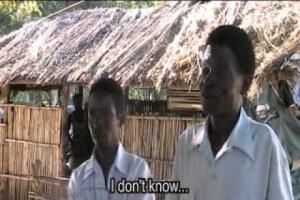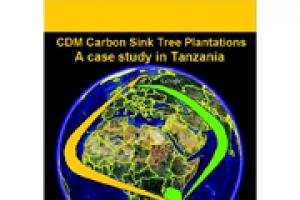Based on a demand of our friends from Geasphere from Southern Africa, we are urging for an end to the financing of the establishment of eucalyptus and pine plantations in Mozambique which are causing negative impacts, especially land conflicts with peasant communities. The letter will be sent to the Global Solidarity Forest Fund which invests in these plantations.
Large-Scale Tree Plantations
Industrial tree plantations are large-scale, intensively managed, even-aged monocultures, involving vast areas of fertile land under the control of plantation companies. Management of plantations involves the use of huge amounts of water as well as agrochemicals—which harm humans, and plants and animals in the plantations and surrounding areas.
Other information
2 September 2011
Other information
1 August 2011
By the NGO Forum on Cambodia - Final Report.
Field Investigations in Koh Kong, Kampong Speu, Pursat, Kampong Chhnang, Mondolkiri, Prey Veng and Svay Rieng Provinces.
Download full document as pdf
Bulletin articles
30 July 2011
The region of Brazil, and perhaps the world, where monoculture eucalyptus plantations and pulp production are expanding most rapidly is in the state of Mato Grosso do Sul, and specifically the micro-region of Três Lagoas.
Bulletin articles
30 July 2011
The forestry industry’s endless pursuit of bigger profits has led to the growing homogenization of trees cultivated for timber, pulp and paper production.
Other information
30 May 2011
By Blessing Karumbidza and Wally Menne - The Timberwatch Coalition
This study dissects a tree plantation carbon sink project at Idete in the Southern Highlands of Tanzania.
The Norwegian company that owns the project, Green Resources Ltd, aims to register the project under the CDM (Clean Development Mechanism) so as to be able to generate carbon credits to sell to the Norwegian government.
Bulletin articles
5 May 2011
Often hidden, neglected or unknown, the underlying causes of deforestation are multiple and varied. And even odd.
Maybe many people are rather familiar with the idea that overconsumption in high-income countries constitutes a major underlying cause of deforestation but not so aware that pet’s consumption patterns share responsibility for the dissappearance of forests.
Other information
5 May 2011
What the big forestry companies have done with our territories in Chile is so devastating, so sad and so irreversible that it brings to the mind the “shock doctrine” described by Canadian author and activist Naomi Klein in her book of the same name (1).
Other information
5 May 2011
The High Court in Kuching, the capital city of the East Malaysian state of Sarawak in the island of Borneo, has made a landmark decision when it ruled out on last 20 February that any joint venture agreement between a non-native and native in oil palm plantation is in contravention of the Land Code that provides that ‘a person who is not a native of Sarawak may not acquire any rights or privileges whatever over native customary right”.
Other information
5 May 2011
Montes del Plata is the name of the joint venture created for operations in Uruguay by two forestry, pulp and paper transnationals: Arauco of Chile and the Swedish-Finnish company Stora Enso. The two have joined forces to build and operate a pulp mill that will produce at least 1.45 million tons of pulp annually.
As a result of this merger, the Montes del Plata consortium became the largest landowner in the country. It controls 250,000 hectares of land devoted to monoculture tree plantations, which will provide the raw material needed by its mega-pulp mill.
Other information
30 April 2011
For a number of years, peasant farmer communities in the province of Niassa, in northern Mozambique, have been fighting back against the expansion of monoculture pine and eucalyptus plantations. This expansion has caused serious problems because it is taking over land from machambas, small family farms used to grow food. Now the struggle waged by these communities has received a significant boost.
Other information
30 April 2011
Brazil: Women in Camp Sister Dorothy Stang – for their right to life, against monoculture eucalyptus
On the evening and early morning of 27 th and 28th February, women of the Landless Rural Workers Movement from all over the Extreme South of Bahia gathered in the area that would become the Camp Sister Dorothy Stang. Many brought their children and looked like they were going to the best party in the world. On 28 th March, round about 4am, before the sun rose on the horizon, hundreds of useless eucalyptus trees were falling on an area planted by Veracel Cellulose, the largest land owner in the state of Bahia. And that’s how they resisted for the next 10 days.
Other information
30 April 2011
Powerful countries and corporations have targeted the African continent to become a commodity supplier for their industrial needs. This has led to intense land grabbing with industrial oil palm plantations becoming in recent years a new source of land grabbing in many African countries.



